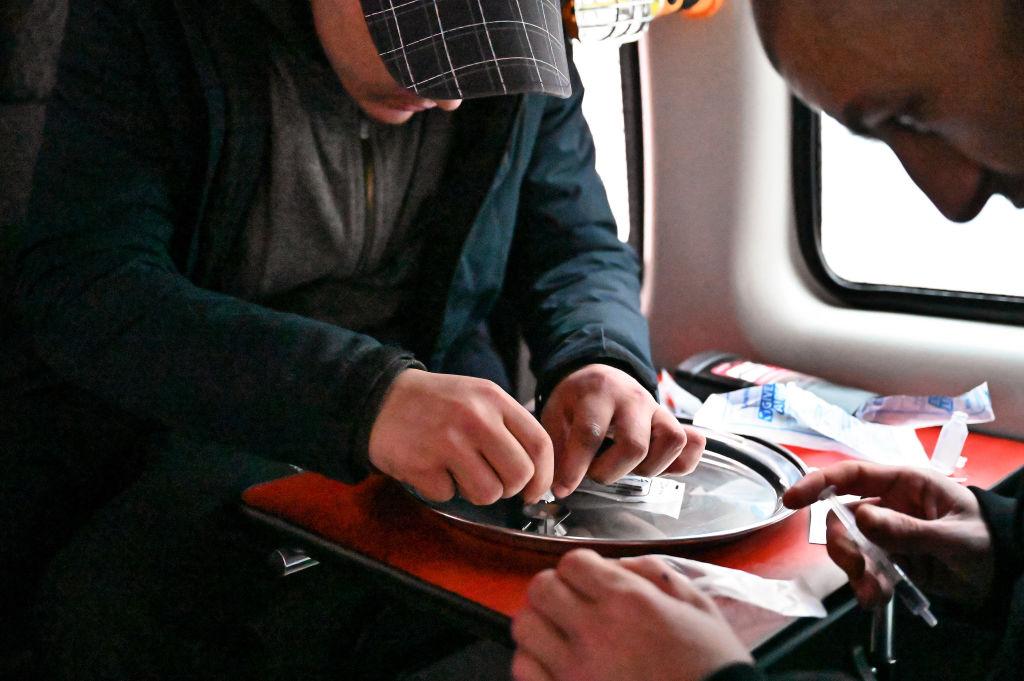Glasgow is set to open its first facility allowing drug use in a controlled environment, sparking concerns among campaigners who argue the initiative prioritises harm reduction over recovery-focused strategies.
Those attending will be able to inject drugs using sterile equipment under the supervision of trained health care professionals. Staff will offer harm reduction advice to lower the risk of overdose and provide immediate assistance if an overdose occurs.
Under the SDCF rules, individuals must be over the age of 18 and cannot share or sell drugs on site. The Thistle includes a using space with individual booths, a recovery area, two health rooms and a smoking area.
Established by the Glasgow City Health and Social Care Partnership (HSCP), the facility will offer a confidential service. Those who choose to use health and social care services, such as blood tests, wound care or referrals, will have their personal information taken by staff.
Drug Deaths
The initiative is part of Glasgow’s plan to tackle drug use. It aims to lower drug-related deaths, reduce public injecting, and keep streets free of discarded needles.Scotland’s drug-induced death rate of 27.7 per 100,000 is the highest in Europe. In Glasgow city centre, there are around 400 to 500 people regularly injecting drugs in public places, which increases the risk of infections and other drug-related harms.
Glasgow city councillor Allan Casey said in a statement that safer drug consumption rooms make a difference for those struggling with addiction and ease pressure on frontline emergency services.
“We know this is not a silver bullet - but having a facility that is safe, hygienic and medically supervised will go a long way towards reducing drug-related overdoses, injection-related wounds and infections, and the negative impact that injecting outdoors has on local residents, communities and businesses. We know there are mixed views about having a SDCF, but I am confident we will see the benefits very quickly,” he added.
Saket Priyadarshi, associate medical director for Alcohol and Drug Services, suggested that evidence from other cities indicates a safer drug consumption facility in Glasgow could reduce drug deaths, curb the spread of HIV, lower drug-related litter, and cut costs in health and social care.
Cycle of Dependency
The Glasgow City HSCP has stressed that the new facility does not encourage drug use but promotes harm reduction.Chief Executive Annemarie Ward warned that a system focused on harm reduction from drug abuse, as opposed to recovery-focused solutions, “traps” drug users in a “revolving door of dependency.”
“Addiction is not just about substances; it is about the broader web of dependencies that keep people trapped in cycles of poverty, trauma, and hopelessness. A system focused solely on harm reduction cannot provide freedom from this cycle.
“Without significant investment in recovery-focused services—such as residential rehabilitation, peer-led recovery communities, and holistic care—individuals are left without the tools and support necessary to break free,” she said.
Scottish officials have said that funding for the SDCF, set at £2.3 million, has not involved redirecting investment from other services.
Glasgow continues to fund recovery treatment and care services, with £1.5 million dedicated to on abstinence rehabilitation services and £2.5 million on services such as recovery hubs.
However, Ward has argued that “far more money is being spent enabling continued drug use than offering a path to freedom from addiction.”
She urged the government to rethink its approach and invest in recovery-focused services.
Under the legislation, individuals will have the right to participate in decisions regarding their treatment plans, while the Scottish minister will be required to develop regulations detailing the implementation of these rights.







